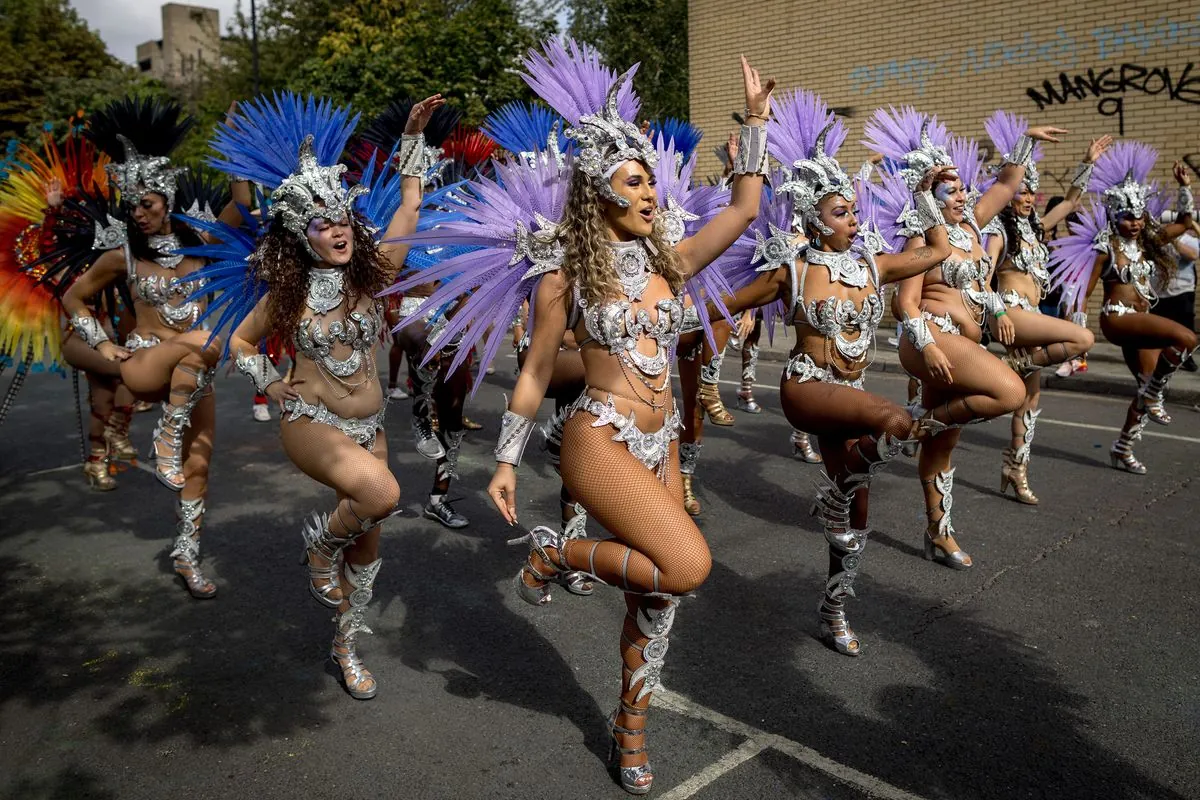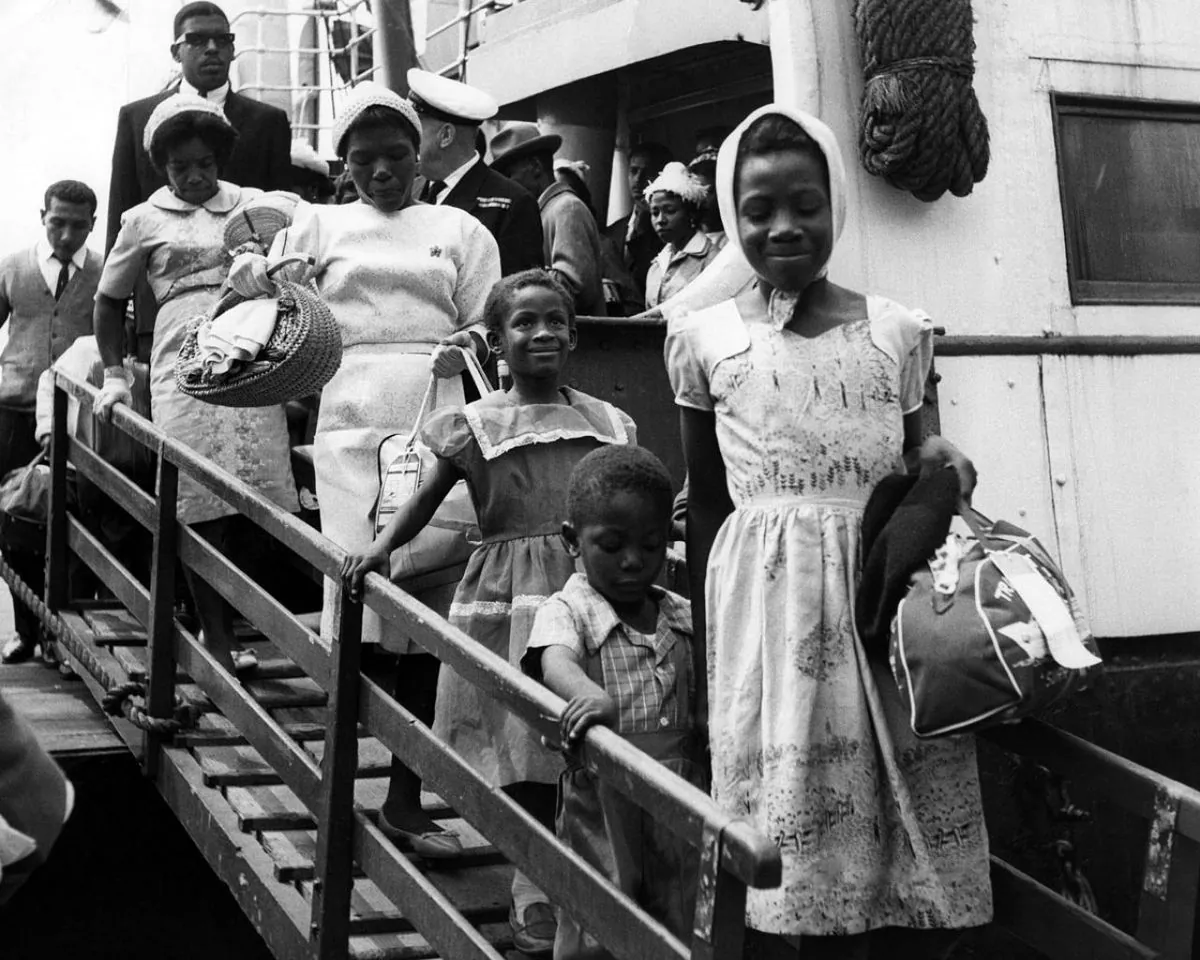Notting Hill Carnival: A Vibrant Celebration of Unity Amid Tensions
London's Notting Hill Carnival, born from racial strife, marks its 56th year. The event, drawing one million attendees, showcases Caribbean culture and promotes unity in the face of recent far-right attacks.

The Notting Hill Carnival, Europe's largest street festival, recently marked its 56th edition, drawing one million attendees to the vibrant streets of west London. This annual celebration of Caribbean culture and London's diversity has its roots in a response to racial tensions, making its message of unity more relevant than ever in light of recent events.
In 1959, Claudia Jones, a Trinidadian-born journalist and activist, organized the first Caribbean carnival in London. This indoor event was a direct response to the racial riots that had erupted in Notting Hill the previous year. Over the decades, Jones' initial gathering has evolved into the massive street party we know today, attracting over one million visitors annually and generating an estimated £93 million for the London economy.
The carnival's origins are deeply intertwined with the history of the Windrush generation - Caribbean migrants who came to Britain between 1948 and 1971 to help rebuild the country after World War II. The name "Windrush" comes from the MV Empire Windrush, one of the first ships to bring West Indian migrants to the UK in 1948. Despite their contributions, these newcomers faced significant racial tensions and unfair treatment.

The importance of the carnival's message of unity has been underscored by a series of far-right, racist attacks that occurred in England in late July 2023. These incidents, fueled by false information online, have reignited discussions about racial harmony and the value of multiculturalism in British society.
Jocelyn Kuyaziwma, a 28-year-old carnival-goer from Wales, emphasized the event's significance: "I feel like it is a step in the right direction in terms of what I would like Britain to be on a daily basis. Everyone comes together. You see people from different countries just flocking together on the streets."
The carnival's atmosphere is a sensory feast, with trucks adorned in colorful materials carrying bands and sound systems playing soca and reggae music. Soca, originating in Trinidad and Tobago in the 1970s, and reggae, which emerged from Jamaica in the late 1960s, form the soundtrack to the festivities. Revelers in bright costumes and carrying flags of Caribbean nations fill the 3.5-mile (5.6 km) parade route.
Matthew Phillip, the carnival's chief executive, described the event as Britain's biggest celebration of inclusion, focusing on "the things we have in common, rather than our differences."
While the carnival is predominantly a joyous occasion, security remains a concern. London police deployed around 7,000 officers for the event, acknowledging that a minority view it as an opportunity for criminal activity. Despite these measures, three stabbings were reported on the first day of the carnival.
"There is space for everyone."
As the Notting Hill Carnival continues to evolve, it remains a powerful symbol of London's multicultural identity. From its origins as a response to racial strife to its current status as a world-renowned street party, the carnival embodies the spirit of unity and celebration that Claudia Jones envisioned over six decades ago.


































